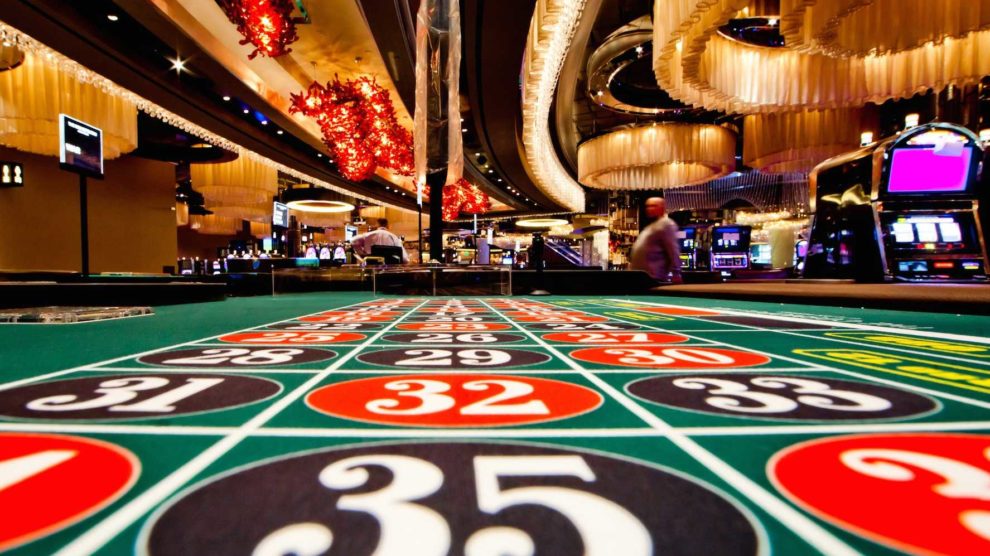
Casino entertainment have long been a significant aspect of human culture, offering not just entertainment but a intriguing reflection of our hopes, wishes, and concerns. From the turning reels of a slot machine to the skill-based strategies of poker, these games represent a variety of human emotions and events. At their core, casino games are more than a chance to make profits; they are a microcosm of life itself, where risk versus reward intertwine and fortunes can change in an moment.
As players assemble around tables or sit in front of brightly lit machines, they engage in a ceremony that transcends mere playing. These games mirror our innate desires for social interaction, excitement, and the search for fortune. They also unveil deeper truths about human behavior, such as our relationship with luck and the excitement of uncertainty. In exploring casino games, we reveal not only the nuances of play but also the complex weave of the human journey, showcasing our intertwining narratives of goal and reality.
The Mind Behind Gambling
Wagering is intrinsically connected in human psychology, tapping into various emotions and wants. The excitement of risk-taking is a fundamental aspect that attracts participants, whether the excitement of spinning a roulette or the anticipation of drawing a winning card in poker. This rush of adrenaline is frequently likened to other forms of excitement, as the unpredictability of outcomes triggers a distinct psychological response. Players often find themselves entranced by the chance of winning big, leading to an irresistible draw toward gambling games.
Another, a crucial component of the psychology behind gambling is the concept of hope and aspiration. Players often nourish dreams of financial freedom and the opulent lifestyle that can accompany winning. bakar69 This hope fuels their continued participation in gambling, as it provides a sense of purpose and the conviction that a transformative win could be just one bet away. The narrative of overcoming odds and achieving success resonates with many, reinforcing their commitment to play and engage with these games.
Finally, social aspects play a significant role in gambling psychology. Casino environments are designed to promote social interaction, where gamblers gather to share the journey of wins and losses. This communal aspect not only enhances enjoyment but also influences behavior, as individuals often imitate the actions of others in their vicinity. The social validation found in shared excitement can enhance the emotional experience, making casino games a mirror of not just personal desires but also collective engagement within the gaming community.
### Risk and Reward: A Double-Edged Sword
Gambling games embody the subtle balance between danger and reward that resonates profoundly with human psychology. The rush of placing a wager is often accompanied by a rush of adrenaline, as gamblers are confronted with the chance of winning big, yet conscious of the potential to suffer losses. This dual experience reflects a fundamental aspect of life: the choices we make often come with built-in risks, and the quest for benefit can push us to embrace risks we might not typically consider. In this way, casino games echo real-world decisions, enticing gamblers to risk not just their funds, but also their dreams.
The allure of big prizes and winnings fuels a sense of optimism, inspiring players to envision a better future that could manifest from a lucky spin of the wheel or dealing of a hand. This optimism can motivate individuals to engage in riskier behaviors, encouraging them to take greater risks in search of financial gain. However, just as in life, the consequences of these decisions can lead to both victory and loss. The stories of both jackpot winners and those who have lost everything at the casino demonstrate the unpredictable nature of luck and its consequential repercussions on our futures.
Ultimately, the interaction of engaging with casino games serves as a strong reminder of the human condition. Every game played is filled with the tension of risk, as gamblers weigh the gains against the dangers. This interaction not only highlights the thrill that comes with betting but also exposes the weaknesses that come with the desire for more. As we journey through the complexities of decision-making and results in both the casino and in life, we find that the quest for gain shapes our identities and lives in significant manners.
Culture and Solitude in Gambling Culture
Casino environment is a special mix of social engagement and personal endeavor, reflecting the tensions of individual experience. Gamblers often come together around tables, sharing in the thrill of the game, celebrating wins, and sympathizing over losses. This communal aspect is crucial, as it fosters a sense of belonging and camaraderie among varied groups of individuals. Regular visitors to gaming establishments may build friendships and develop routines, turning the casino into a alternative home where they feel linked to a larger community of players.
However, the allure of casino activities can also result to loneliness. As players become engrossed in the thrill of gambling, they may isolate from personal relationships or fail to engage with the world outside the casino. For some, the search of a windfall can overshadow genuine relationships, leading to loneliness. The experience of being surrounded people yet feeling solitary is not uncommon, as the focus shifts from collective fun to the private stakes of each individual’s journey.
This interplay of society and solitude creates a vivid tapestry that defines casino culture. It showcases the complexity of human interactions, where happiness and sorrow exist together. Casinos serve as both a sanctuary for social interaction and a platform for individual struggles, illustrating how intimately entwined our yearning for companionship and the personal quest for wealth can be. In navigating this environment, players confront their own stories—seeking both the rush of the game and the companionship of other gamblers, eventually mirroring the broader spectrum of human experience.
